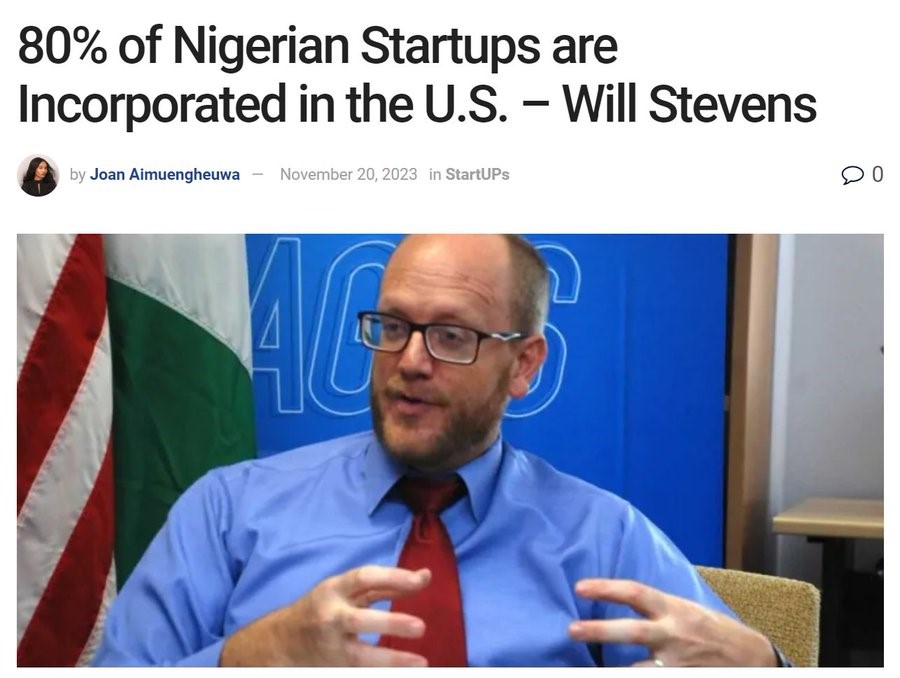Nigeria is not competing adequately for foreign direct investment. I will explain this.
The Ministry of Interior is responsible for licensing businesses in Nigeria wholly foreign-owned or joint venture owners with expatriates.
According to the “Handbook on Expatriate Quota Administration issued by the Federal Ministry of Interior, the ministry approves this investment in Nigeria by issuing a business license.

Thus, to do business in Nigeria as a corporate entity owned 100% by foreigners or a joint venture between Nigerians and foreigners, the entity needs a Business Permit issued by the Ministry of Interior.
The business permit requires the entity to have a minimum paid-up share capital of N100m. The handbook also states, “The value of equipment or machinery imported into the country for the purpose of conducting business could also form a portion of the paid-up capital to be invested in the country.”

The Ministry of Interior requires proof of this capital being imported or other funding source, including a “Certificate of Capital Importation along with a covering letter from the bank or with a scannable QR Code.”
In addition to this, the investors must show proof that they have acquired a permanent, I stress again permanent owner operating premises, thus evidence of acquisition of permanent operating premises, i.e., lease/tenancy agreement, C of O or R of O.
Let me use this example: if I set up a company to offer online training. I can attract the New York Institute of Finance to partner with me to provide financial training in Nigeria. I MUST invest N100m to show evidence of that via a Capital Importation Certificate and then get a permanent place of business in Nigeria to get a business license to operate legally in Nigeria.
These are onerous requirements; why do I need N100m to capitalize on my business? Why is N100m minimum for all companies?
What happens if I do not have N100m? Or a permanent residence?
Easy; I can visit the US or Rwanda and incorporate a company there. The US or Rwanda do not require N100m paid-up capital. This is one reason 80% of Nigerian startups are flocking to Delaware to incorporate: it is far CHEAPER.

Nigeria must realize that investment capital is mobile and that Nigeria, as an investing destination, is competing with nations like the US and Rwanda.
This circular from the Ministry of Interior makes Nigeria uncompetitive to foreign investment. It imposes onerous requirements to create local jobs.
It feels more like a plan to increase Internally Generated Revenue at the expense of Foreign Direct Investment.
Cancel the N100m requirement or amend it to reflect the necessary capital required for different categories of business.













This argument appears somewhat misleading.
First, the writer’s critique of the Ministry of Interior’s handbook doesn’t seem relevant in his individual context, given that he’s a Nigerian citizen and, as a major shareholder or controlling director of his online training company, wouldn’t be classified as an expatriate under Nigerian law. Therefore, the Expatriate Quota Administration handbook he refers to wouldn’t typically apply to him.
Moreover, the majority of Nigerian startups today are primarily owned by Nigerian founders and investors, suggesting this handbook wouldn’t apply to them either. Most Nigerian tech startups are dual-incorporated in both the United States and Nigeria. The U.S. entity typically acts as the international holding company, aiding in capital attraction and fundraising, and benefiting from U.S. banking, corporate governance, and legal systems. Meanwhile, the Nigerian entity handles operations.
This handbook is primarily intended to encourage capital investment and the hiring of local Nigerian labor by multinational corporations. It has seldom been a barrier to Foreign Direct Investment in Nigeria.
There’s a broader discussion to be had about whether the Ministry of Interior should have the authority to impose arbitrary quotas on expatriate capital and labor to begin with.
Perhaps, a more conducive approach might be to streamline processes to entice more investors and business owners from across Africa and worldwide to establish businesses in Nigeria, leveraging the country’s vast domestic consumer market, and promoting Lagos as a pan-African financial market for continental capital formation. This is similar to the ease of business incorporation and formation for international residents and companies in Delaware in the United States and under English law in the United Kingdom. However, both the US and the UK primarily leverage their tax systems to ensure that foreign investors and business owners contribute capital and hire locally. This approach contrasts with Nigeria’s permitting and quota system established and managed by the Ministry of Interior.
But in my opinion, the conclusions drawn by the writer about the current handbook of the Ministry of Interior seem overly alarmist and disconnected from the actual on-ground realities of FDI in Nigeria.
Okay, I stand corrected. The issue is not from the Ministry of Interior handbook, it’s from the CAC itself and their publication of a new handbook…
I think the minimum investment capital requirement for FDI in Ghana is about a million USD. I learned some of their reasons include protection of indigenous SMEs and ensuring the foreign business can make a reasonable impact in the economy which includes but not limited to employing local manpower or labour. Therefore, I believe that a minimum of about a hundred thousand USD requirement by Nigeria seems very considerate from the angle of foreign investors.
Why is there any requirement at all for minimum capital requirement at all?
Not even going to try to get my head around the archaic “expatriate quota” nonsense. Unfortunately, Nigerians (and apparently Ghanaians) are still stuck in colonial and 20th century mindsets. SMH